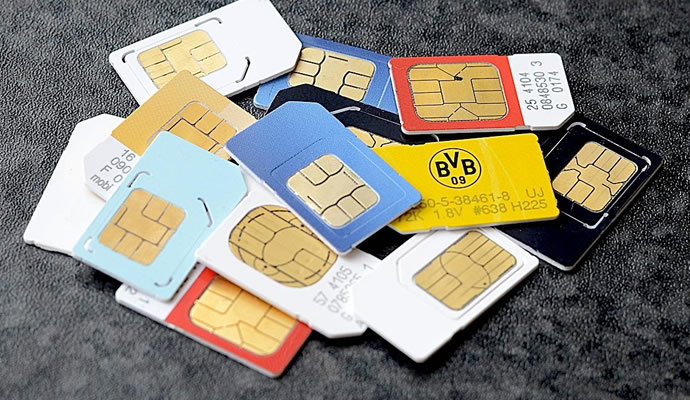- Losers, gainers emerge
- As operators beat drum for intense competition
By Omobayo Azeez
The aggressive marketing and expansionist activities of operators in January this year resulted in additional 3.95 million active subscriptions on the networks of mobile network operators (MNOs) in the country, latest industry data have shown.
The data, retrieved from the Nigerian Communications Commission (NCC) indicate that of the new active subscribers, 2.64 million became active on internet while the remaining 1.31 million only joined mobile telephony.
With the latest development, total active GSM line in the country stood at 185.74 million as at January from 184.43 million recorded in December, 2019.
Similarly, Nigerians who access internet connectivity via GSM line soared from 126.08 million in December to 128.72 million in the first month of 2020.
Further analysis of the NCC data shows that in the month under review, winners and losers emerged among the five operators that currently make up of the GSM segment of the market which include MTN, Globacom, Airtel, 9Mobile and Visafone.
Records show that MTN did not only retain its leading stand in the market with a total of 70.69 million subscriber and 55.53 million internet users, it was the highest gainer in the month with 1.42 million and 1.93 million new internet and phone subscribers respectively.
Although, Airtel advanced to 35.50 million internet users after it registered 0.98 million new entrants while it lost phone subscribers from 50.19 million in December last year to 50 million as at January this year.
Globacom welcomed 0.28 million new users on its internet network which now stands at 29.21 million with its total active subscriber base at 51.76 million, standing only an inch ahead of Airtel, its fiercest and closest competitor in the Nigerian market.
Meanwhile, subscribers continue to flee perpetually from the network of the fourth largest GSM operator in the country, 9Mobile, as internet users further dwindled to 8.04 million from 8.07 million from December to January.
Similar downward situation was experienced in terms of total subscribers of the troubled operator as almost 500,000 customers rendered their 9Mobile lines inactive in January, consequently, moving from 13.64 million in December to 13.16 million in January.
Visafone, which became the smallest operator in the space after transferring its subscribers to the GSM band in March, 2019 also posted positive performance in January.
Its subscribers moved up from 134,516 in December 2019 to 138,144 as at January while those who have access to internet out of these customers equally improved from 90,174 to 90,196 in the same period under review.
Meanwhile, expectations are rife that competition will get tougher among the operators as they each roll out plans to invest on improving their service qualities and expand to new territories.
Just recently, 9Mobile announced fresh investment of $220 million to improve and expand its 4G LTE networks in 17 cities in the country.
According to Stephane Beuvelet, 9Mobile acting managing director, the focus of the company is to increase the internet penetration and establish a reputation as the network that adds value to the communities in Nigeria.
Earlier in the year, MTN Nigeria had pledged to improve its network in Nigeria by investing fresh N600 billion on core capital expenditure (CAPEX) in 2020, a commitment reiterated last week by Ferdinand Moolman, the company’s chief executive officer, who led a team of other MTN top executives during the telco’s earnings call.
According to Moolman, the money will be invested heavily towards upgrading MTN’s fibre optics infrastructure, in order to facilitate its plan to increase 4G network coverage across more locations in the country.
In another development, Airtel Africa announced, last week, through a filing at the Nigerian Stock Exchange (NSE), that it expended $70 million to purchase an additional 10MHz spectrum in the 900MHz band to deliver a more efficient service across its various value offerings in the country.
Experts see all these, among others, as bases for improved quality of service but at the same time preamble to a tougher competition in the future when operators would be seen scampering over available subscribers even as they will jostle to connect new subscribers.
According to Association of Telephone, Cable TV and Internet Subscribers (ATCIS), when operators invest to improve their networks, they are still the ultimate beneficiary of such efforts.
Sina Bilesanmi, ATCIS national president said: “Operators will be competitive among their contemporaries if their service is good even as this will also enable them to serve subscribers with better service quality.
“At least, there is no yet a rule mandating subscribers to be attached permanently to any particular service provider and so, when frustrated, subscribers have access and freedom to pstronise other networks or can even port to another platform with the same telephone line.”











